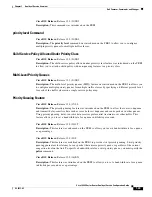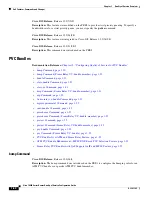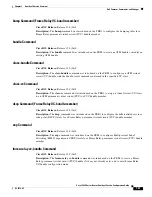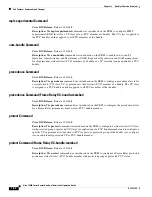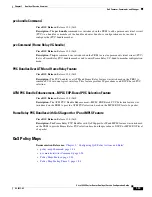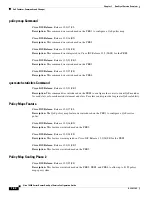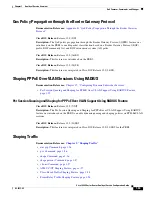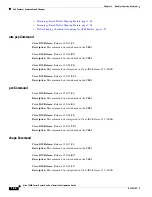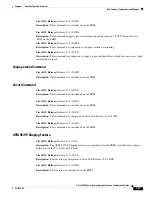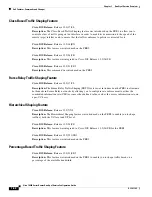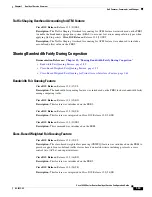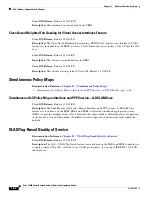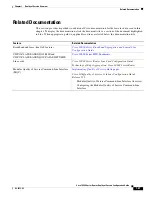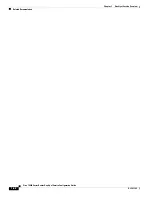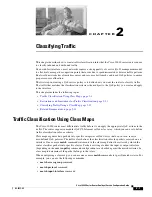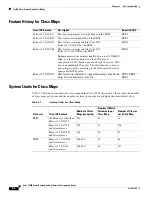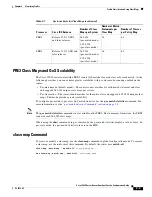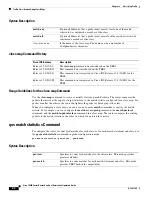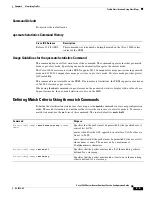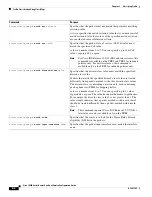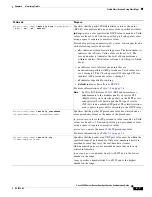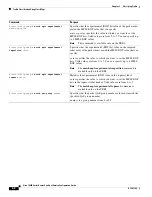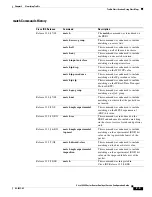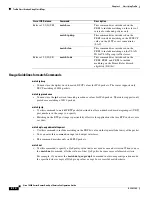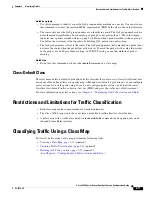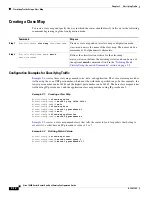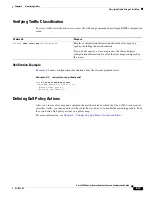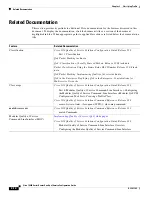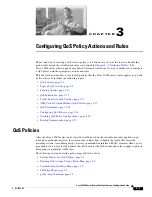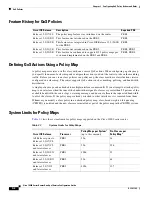
C H A P T E R
2-1
Cisco 10000 Series Router Quality of Service Configuration Guide
OL-7433-09
2
Classifying Traffic
This chapter describes how to create traffic classification rules that the Cisco 10000 series router can use
to classify inbound and outbound traffic.
Even with fast interfaces, most networks require a strong quality of service (QoS) management model
to effectively manage the congestion points that occur due to speed-mismatch or diverse traffic patterns.
Real world networks have limited resources and resource bottlenecks, and need QoS policies to ensure
proper resource allocation.
The first step in creating a QoS service policy is to define how you want the router to classify traffic.
The traffic that matches the classification criteria is then subject to the QoS policy you create and apply
to the interface.
This chapter includes the following topics:
•
Traffic Classification Using Class Maps, page 2-1
•
Restrictions and Limitations for Traffic Classification, page 2-11
•
Classifying Traffic Using a Class Map, page 2-11
•
Related Documentation, page 2-14
Traffic Classification Using Class Maps
The Cisco 10000 router must differentiate traffic before it can apply the appropriate QoS actions to the
traffic. The router supports a modular QoS CLI element called a
class map
, which you can use to define
traffic classification rules or criteria.
Class maps organize data packets into specific categories called
classes
that can, in turn, receive
user-defined QoS policies. The traffic class defines the classification rules for packets received on an
interface. One or more
match
command statements in the class map define the criteria by which the
router classifies packets into specific classes. Packets arriving at either the input or output interface
(depending on the
service-policy
command configuration) are checked against the match criteria of a
class map to determine if the packet belongs to that class.
When configuring a class map, you can use one or more
match
commands to specify match criteria. For
example, you can use the following commands:
•
match access-group
command
•
match protocol
command
•
match input-interface
command

